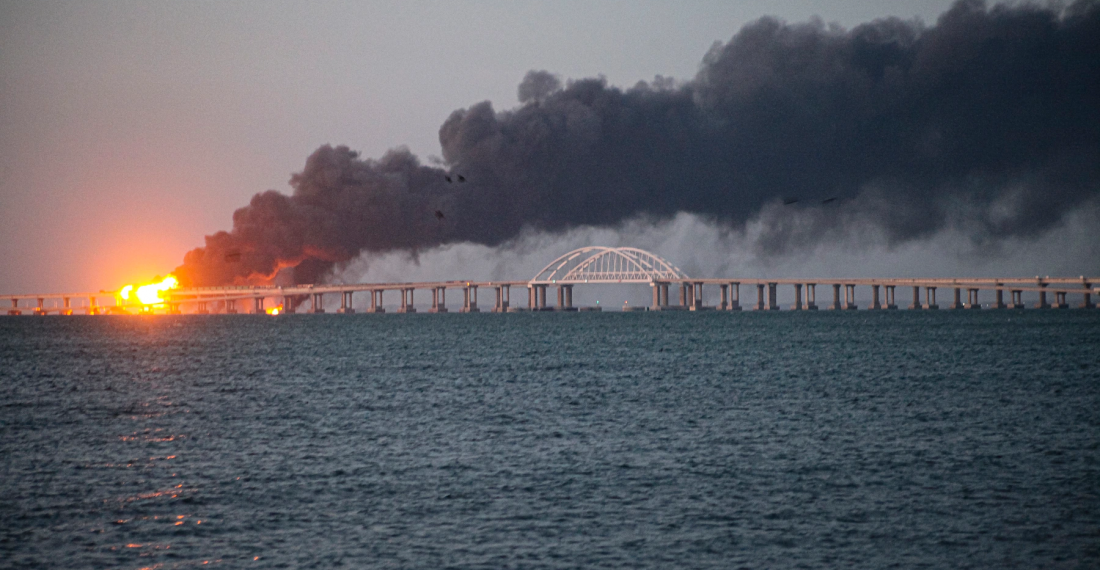The Russian Federal Security Service FSB announced on Wednesday (12 October) the arrest of eight suspects believed to be involved in the sabotage of the Kerch Strait Bridge on Saturday (8 October).
The explosion occurred on the Kerch Strait Bridge which connects Russia with the Russian annexed Crimean Peninsula, thus disrupting one of Russia’s major supply lines for their troops currently fighting in Southern Ukraine. Three people died in the explosion, and Russian authorities are attributing the attack to a truck bomb organised by the Ukranian Defense Ministry. Although Ukrainian authorities have denied responsibility for the explosion, some Ukrainian officials have honoured the damage caused by the attack.
Meanwhile, the FSB reports that it has identified 12 individuals responsible for the supposed Ukrainian sabotage, where eight of these have been detained as of early Wednesday (12 October). Of the detainees, five are Russian citizens while the remaining three are Ukrainian and Armenian citizens.
The Kerch Strait Bridge has been essential for Russian troops in providing a key logistical asset providing supplies to Russian troops fighting in the Southern regions of Ukraine. Following the explosion, analysts predict that Russian troops’ access to fuel, equipment, and ammunition in the Kherson and Zaporizhzhia regions will be severely limited. Both the Kherson and the Zaporizhzhia regions were part of the Russian annexation declared by Russian President Vladimir Putin in late September.
Following the attack, Russian forces initiated airstrikes against major Ukrainian cities including Kyiv, justifying the attacks by attributing the sabotage to Ukrainian authorities.
source: commonspace.eu with agencies
photo: Washington Post






